David Andrade
Daniel Andrade, a born and raised maragogipano, grew up witnessing the changes in local fishing and the transformation of the mangroves. He became a Rare Fellow in December 2014.
“They feel more confident and proud of what they do. ” Ocean Witness Daniel Andrade about the marisqueiras he’s helping with a successful project in the mangroves of Brazil.
Daniel Andrade, a born and raised maragogipano, grew up witnessing the changes in local fishing and the transformation of the mangroves. Looking to the marisqueiras as the key players to lead local adoption of sustainable management, Daniel started a Pride campaign with Rare. Three years later, they’ve emerged as local leaders with newfound pride for their occupation — with all of its mess and toil — and the drive to balance oyster production with the preservation of the mangroves. We’re proud to have him as a Ocean Witness.
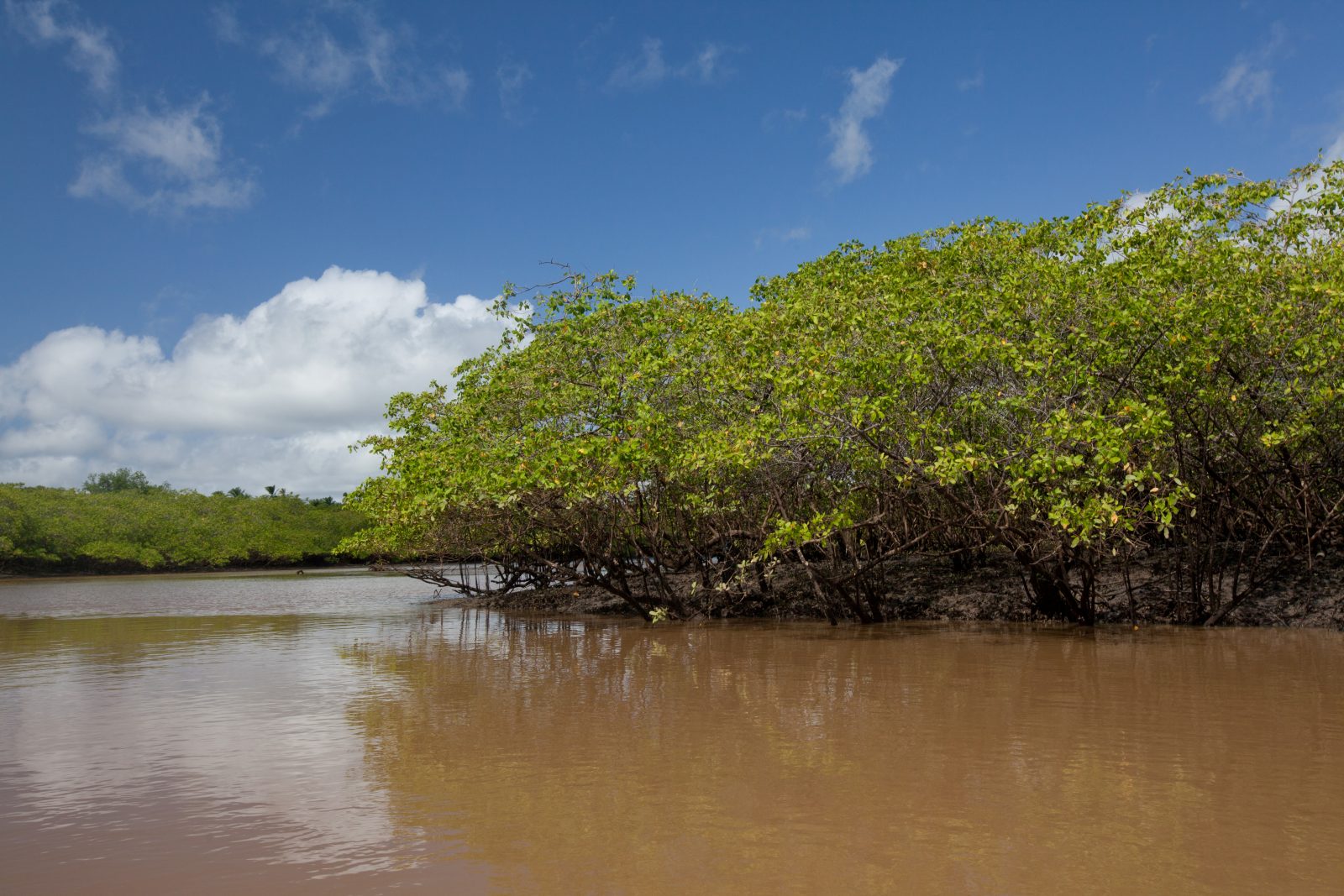
Like many of the marisqueiras in Maragogipe, Brazil, Elizabete Soares learned to harvest wild oysters from mangrove banks by watching her mother. At 35, she still does it the same way: every morning from Monday to Friday, Bete goes to the banks alone or with a small group of no more than four other shellfish collectors. Bete remembers what it was like watching her mother collect oysters. “She could get about three kilos,” she says. “Today, there are tides where I cannot even get a pound of oyster. And the oysters are much smaller than in her time.” The marisqueiras, female shellfish collectors responsible for most of the wild oyster harvest in Maragogipe, link the drop in wild oyster stocks to harmful development activity and resource over-extraction in the area. But their problems don’t stop there: for years, the women have also dealt with grueling working conditions and stifled access to local markets. In late 2014, Daniel Andrade, a maragogipano who’s worked to defend the area’s mangroves since he was 17, partnered with Rare to help the marisqueiras change the status quo.
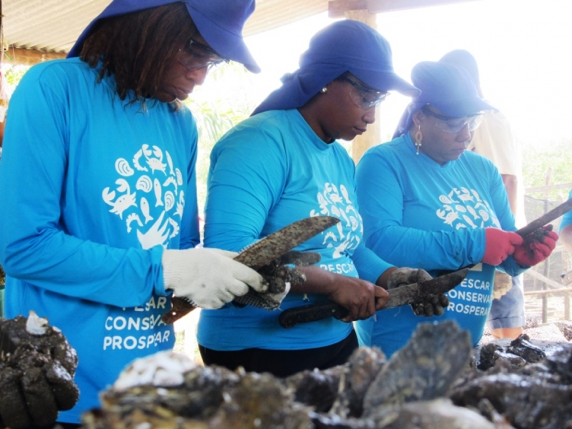
“They feel more confident and proud of what they do.” Ocean Witness Daniel about his successful project in the mangroves of Brazil.
Daniel Andrade started a Pride campaign with Rare in Maragogipe’s Capanema and Baixão do Guaí communities to drive sustainable management of oyster and thick lucine fisheries, and promote conservation of the mangroves that shelter them. Looking to the marisqueiras as the key players to lead local adoption of sustainable management, Daniel encouraged them to take ownership of their multiple identities as shellfish collectors, women, and quilombolas (descendants of Afro-Brazilian slaves) — and channel those identities as a unified body. Three years later, they’ve emerged as local leaders with newfound pride for their occupation — with all of its mess and toil — and the drive to balance oyster production with the preservation of the mangroves. As an Ocean Witness, he wants to share his story with us.
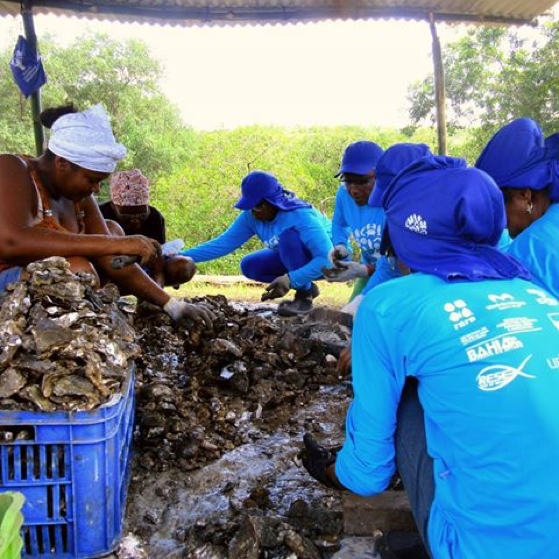
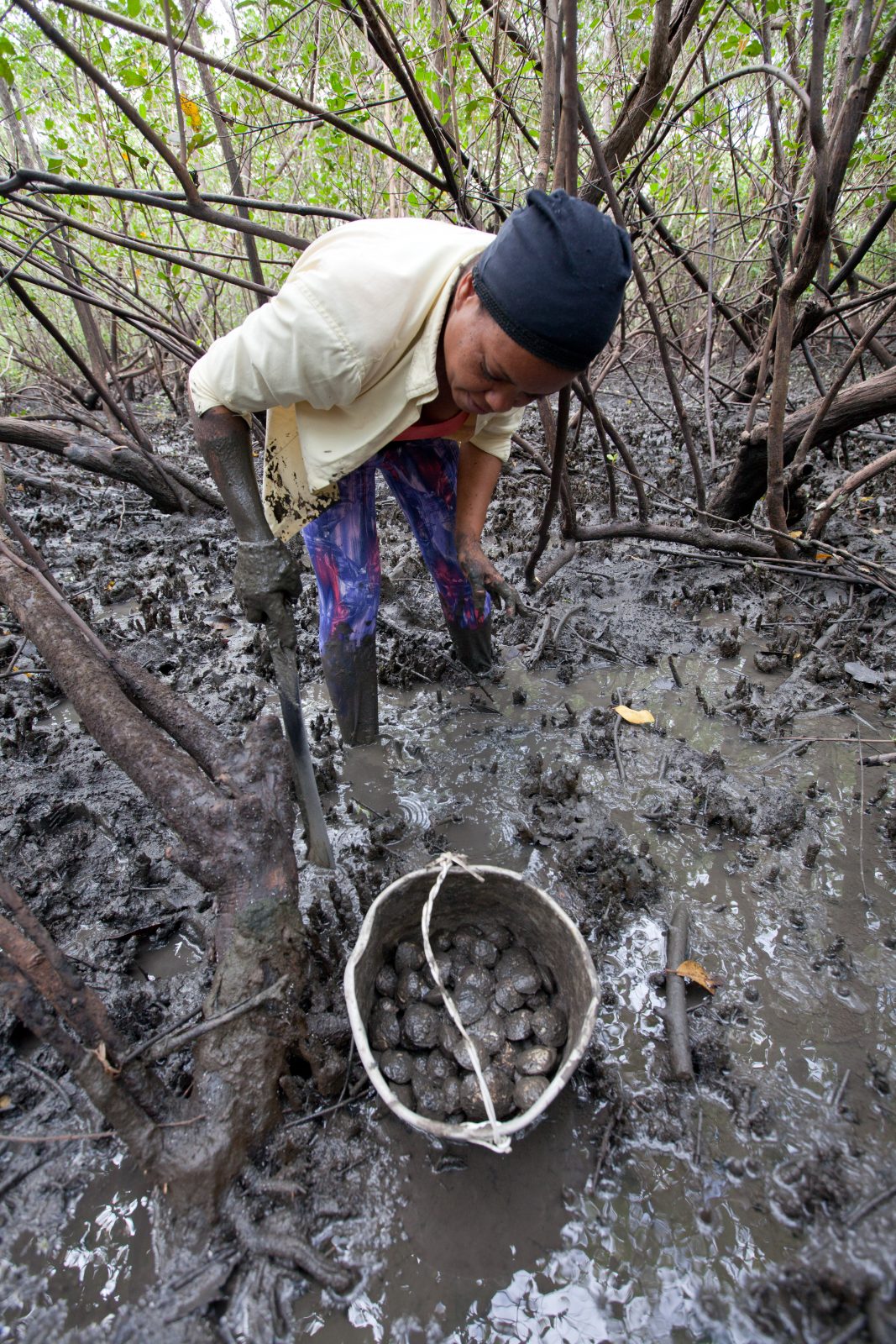
Throughout the campaign, Daniel focused on providing autonomy for the marisqueiras, creating a campaign “‘with them’ and not just ‘for them,’” he says. “So the campaign began, literally, with knocking on doors of community leaders, then holding meetings and attending Resex and Quilombola Council meetings. There was a whole process of building trust, and gradually they realized it was a different proposal.”
30 families of shellfish farmers — chosen by criteria developed by the marisqueiras — manage the oyster farms. They’ve set up the farm to use structures made of bamboo, seed collectors produced with PET bottles (plastic bottles, mostly soda or water bottles, usually dumped in the trash), and shared management. In its methods, the enterprise promotes the autonomy of shellfish farmers while ensuring sustainability: the method can be used by all fishers, and the bottles’ use in cultivation reduces the impact of plastic waste in the community.
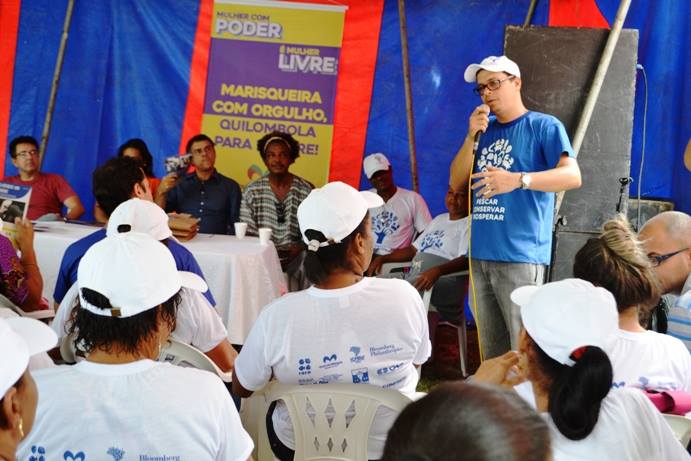
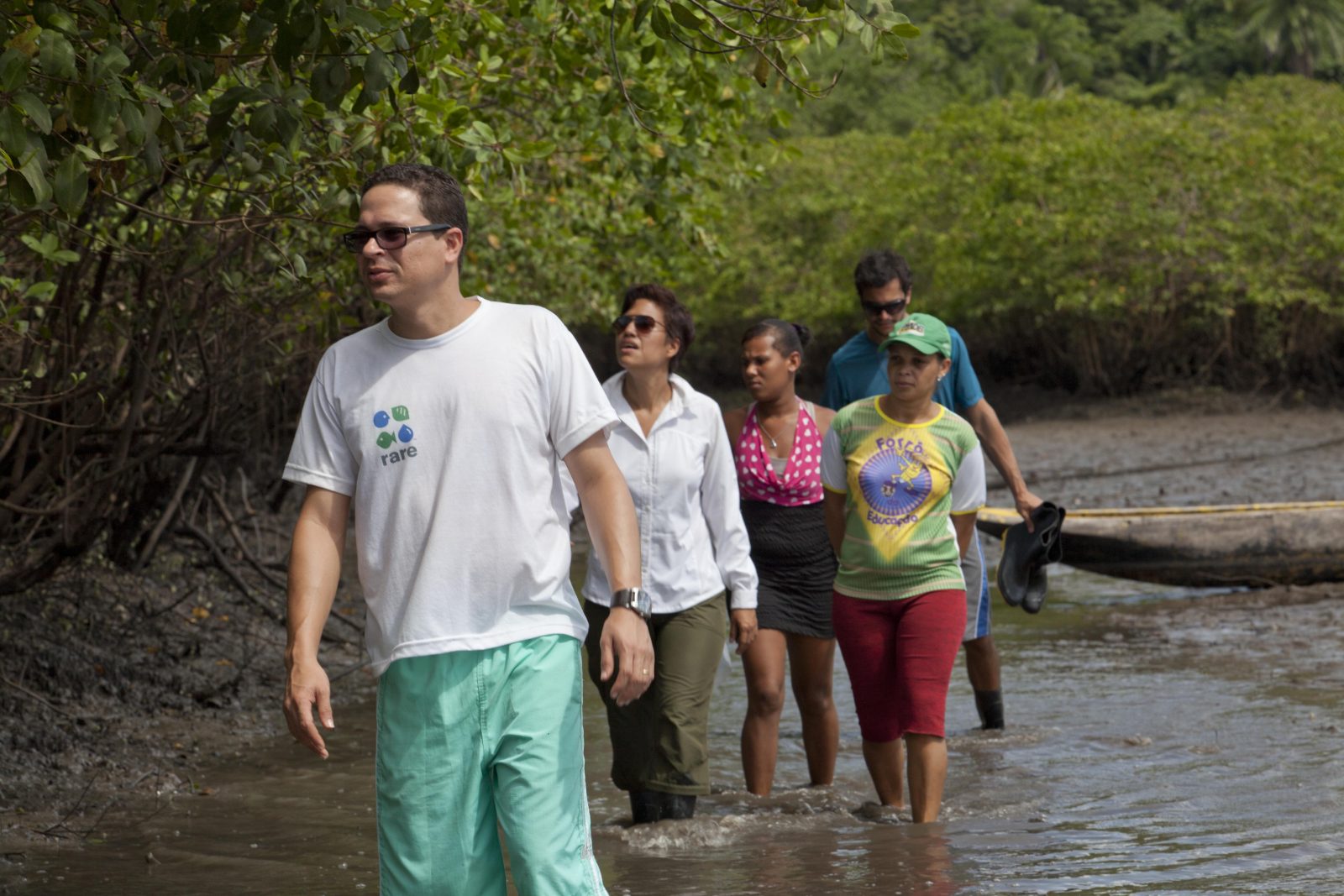
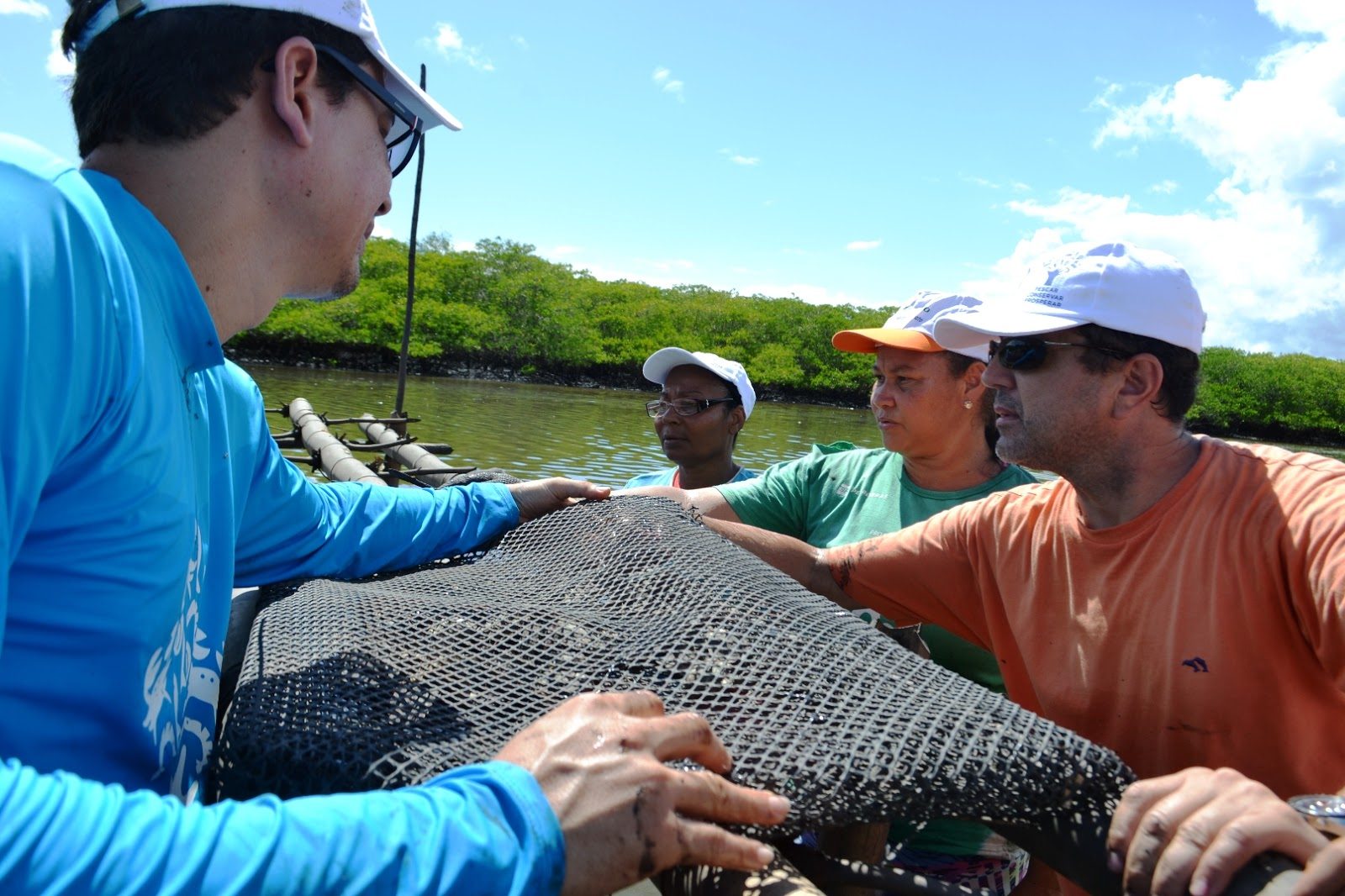
As the farmed oysters grow in their shells, the marisqueiras use their years of harvesting experience to collect them. “They call me and send happy videos for each new achievement, like when they took more than a thousand oyster seeds from the collectors,” says Daniel. “They already know how to handle the crop, they already know when and how to clean the oysters, change the pillows, and remove the seeds. They already dominate all the steps and do everything by themselves.” Combined, the Capanema and Baixão do Guaí crops have produced around 1,400 sets of ready-to-market oysters by the dozen, and the marisqueiras are preparing to carry out their first commercialization of the farmed oysters.
Today, when the marisqueiras head out to the mangrove banks, they can pull on legionary caps, neoprene boots, and protective shirts that shield them from UV rays, purchased with funds raised by the campaign. They’ve changed how they sell their oysters, selling them by the dozen instead of individually, and negotiating with end customers instead of solely middlemen. And when they speak before the community, they speak as leaders. “They feel more confident and proud of what they do,” says Daniel. “Many are no longer afraid or ashamed of public speaking or exposing their opinions.” Daniel aims to make sure it stays that way. “I intend to continue to advise them even after the end of Rare’s partnership with the Vovó do Mangue Foundation, until they can walk alone,” he says. “This is my responsibility.”
Daniel Andrade, a born and raised maragogipano, grew up witnessing the changes in local fishing and the transformation of the mangroves. He became a Rare Fellow in December 2014 Daniel started a Pride campaign to drive sustainable management of oyster and thick lucine fisheries, and promote conservation of the mangroves that shelter them. Three years later, they’ve emerged as local leaders with newfound pride for their occupation — with all of its mess and toil — and the drive to balance oyster production with the preservation of the mangroves.